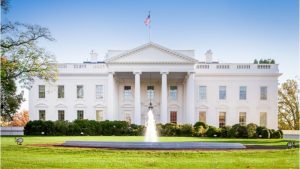The National Association of Counties (NACo) is piloting an Artificial Intelligence (AI) Leadership Academy, an online program to equip frontline county government leaders with practical knowledge and tools.
The Biden-Harris administration announced actions this week from government, academia, and civil society that aim to grow and enable the public interest technology ecosystem through bolstering the workforce.
The Federal Communications Commission (FCC) has proposed a final rule that, if adopted, would allow schools and libraries to use funding from the E-Rate program for off-premises use of WiFi hotspots.
The Oklahoma Educational Technology Trust (OETT) announced the 21 schools selected to receive grants for the 2024-2025 school year.
The Federal Communications Commission (FCC) on June 6 voted to approve a $200 million pilot project that will take a three-year deep dive into studying the best cybersecurity services and equipment options for K-12 schools and libraries.
The Department of Commerce’s (DoC) Economic Development Administration (EDA) made public today the details of the 31 technology hubs’ proposals for the second phase of the new Tech Hubs program – revealing a collective request of $2 billion in funding for a total of 182 projects.
Security analysts in the education sector must contend with evolving cybersecurity threats despite limited resources. MeriTalk recently sat down with Helen Patton, cybersecurity executive advisor for education at Cisco, to discuss how an open, collaborative approach to threat detection and response can help streamline processes for overburdened security teams.
The U.S. Department of Education, in coordination with the Cybersecurity and Infrastructure Security Agency (CISA), officially launched the Government Coordinating Council (GCC) for the Education Facilities Subsector on March 28 to better support K-12 cybersecurity efforts.
Pennsylvania State University (Penn State) has named David Horton vice president for information technology and chief information officer (CIO). The university said that Horton will start the new role on a part-time basis before going full time by June 1.
New York Gov. Kathy Hochul has approved 59 Smart Schools Investment Plans, which are focused on modernizing school technology and boosting school security.










